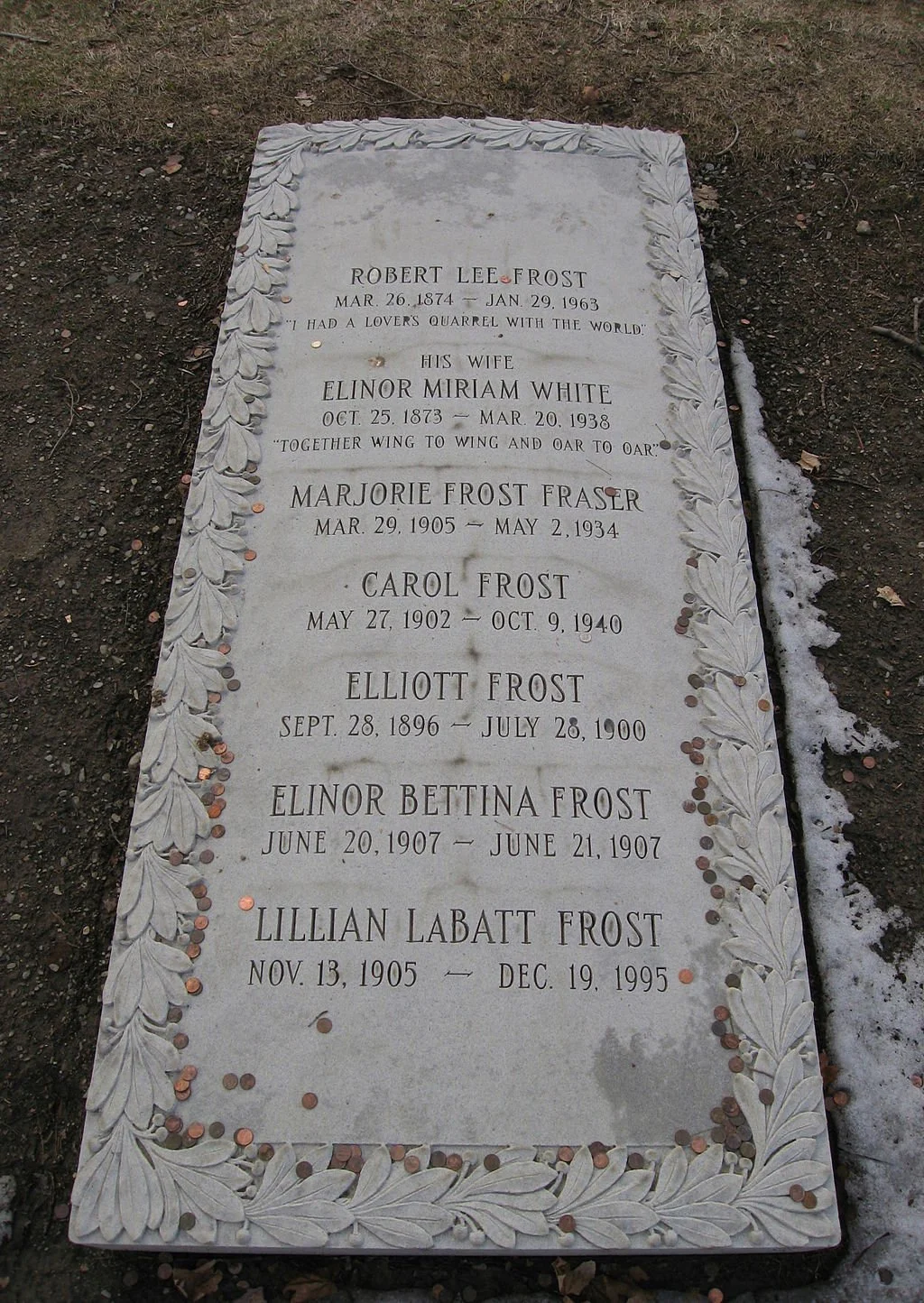The end of his quarrel and road
Robert Frost’s grave, in Bennington, Vt.
— Photo by Nheyob
One of the most famous — and misunderstood — poems in the English Language, first published in 1915
Two roads diverged in a yellow wood,
And sorry I could not travel both
And be one traveler, long I stood
And looked down one as far as I could
To where it bent in the undergrowth;
Then took the other, as just as fair,
And having perhaps the better claim,
Because it was grassy and wanted wear;
Though as for that the passing there
Had worn them really about the same,
And both that morning equally lay
In leaves no step had trodden black.
Oh, I kept the first for another day!
Yet knowing how way leads on to way,
I doubted if I should ever come back.
I shall be telling this with a sigh
Somewhere ages and ages hence:
Two roads diverged in a wood, and I—
I took the one less traveled by,
And that has made all the difference.
— “The Road Not Taken,’’ by Robert Frost
In The Paris Review critic, poet and essayist David Orr described some of the misunderstanding this way:
“The poem’s speaker tells us he ‘shall be telling,’ at some point in the future, of how he took the road less traveled…yet he has already admitted that the two paths ‘equally lay / In leaves’ and ‘the passing there / Had worn them really about the same.’ So the road he will later call less traveled is actually the road equally traveled. The two roads are interchangeable.’’
